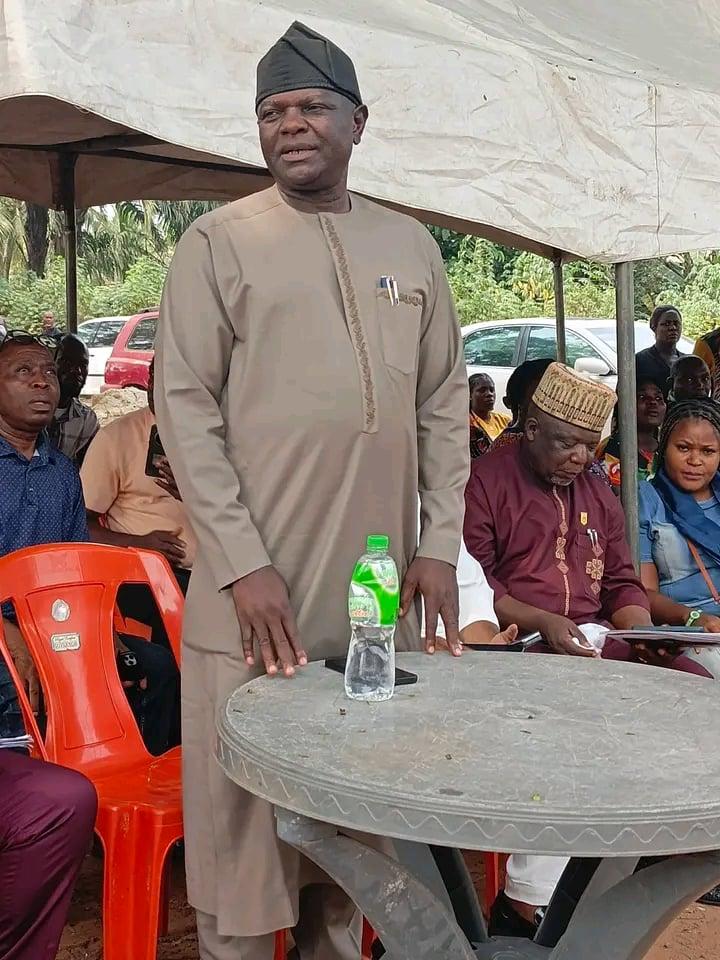26,000 children held in Correctional Centres annually – Tunji-Ojo

…as FG Mmoves to end child detention crisis
By Ukpono Ukpong
The Federal Government has vowed to end the detention of children in correctional centres across Nigeria, following alarming revelations that an estimated 26,000 children are held in such facilities annually.
This was revealed by the Minister of Interior, Dr. Olubunmi Tunji-Ojo, during a high-level inter-agency meeting in Abuja.
Dr. Tunji-Ojo further highlighted that the 2024 report on children and young adults deprived of liberty presented a sobering reality, with minors making up over 30% of the total inmate population over the past five years.
“This figure represents over 30% of the total inmate population, raising serious concerns about violations of child protection laws,” he stated.
READ ALSO: E-paper: 10 things you need to know on The DailytimesNGR
The Minister reiterated that the government is taking decisive steps to investigate the breaches and ensure accountability among institutions that continue to detain children unlawfully.
Furthermore, Tunji-Ojo reaffirmed the government’s commitment to reforming the correctional system and addressing violations of child protection laws.
Speaking at the event, the Minister condemned the detention of minors in adult correctional centres, calling it a clear violation of the Nigerian Child Rights Act of 2003.
He stressed that children in conflict with the law should be placed in borstal institutions rather than correctional facilities.
“The law is clear, children should not be in adult correctional centres. We will not tolerate violations of this law. There will be consequences for agencies that fail to uphold the law,” he asserted.
Tunji-Ojo emphasized the need for urgent reforms in the justice system, outlining plans to transform correctional centres into reformation and rehabilitation facilities.
According to the Minister, special attention will be given to non-custodial measures for non-violent offenders, reducing the number of pre-trial detentions.
This is as he called for stronger inter-ministerial collaboration and active involvement from state governments to ensure nationwide implementation of these reforms.
“Reality, as I always say, is not about losing ourselves in the past but focusing on the present to shape the future. The future is now, and we are determined to operate with a ‘business unusual’ mindset to drive real change,” he said.
He stressed the importance of inter-ministerial collaboration under President Bola Tinubu’s Renewed Hope Agenda, noting that Ministries must no longer function in isolation to achieve lasting reforms.
Tunji-Ojo commended the Attorney General of the Federation, the Minister of Women Affairs, and the Minister of Humanitarian Affairs for their joint commitment to comprehensive justice reform.
“The future is now. We are committed to building a system that generations yet to come will be proud to call their own. Correctional services are not about condemnation but correction, and this is the path we must follow,” he declared.
The Minister also called for mobilizing political will and resources to drive systemic reforms and end arbitrary child detention.
“It takes a whole village to raise a child. Our nation cannot afford to fail its children. This administration will ensure that by 2027, we talk about achievements, not promises,” he affirmed.
With strong government backing and unwavering political resolve, the Minister assured Nigerians that the justice system would soon be restructured to protect the rights of every child.
Tunji-Ojo called on stakeholders, government agencies, development partners, and civil society organizations to collaborate in ensuring no Nigerian child is left behind in the nation’s reform efforts.
He announced the establishment of a Nigerian Paramilitary Academy to train officers in empathy and correctional principles.
Earlier, the Permanent Secretary of the Ministry of Interior, Dr. Magdalene Ajani, described the 2024 report on children and young adults deprived of liberty as a wake-up call, revealing that between 2018 and 2022, an average of 26,000 children and young adults were held in custodial centres annually.
“These statistics are not just numbers; they represent vulnerable lives in urgent need of intervention,” she noted.
Dr. Ajani underscored the need to promote non-custodial measures and diversion programs as viable alternatives to detention.
She advocated for strengthening legal frameworks to ensure detention remains a measure of last resort, in line with Article 37(b) of the United Nations Convention on the Rights of the Child.
She emphasized that ending child detention is not only a moral obligation but also a strategic investment in sustainable development, justice, and poverty reduction.
The high-level meeting was attended by representatives from the Ministries of Justice, Women Affairs, and Humanitarian Affairs, as well as UNICEF and other development partners, as part of a concerted effort to protect the rights of children in Nigeria.










